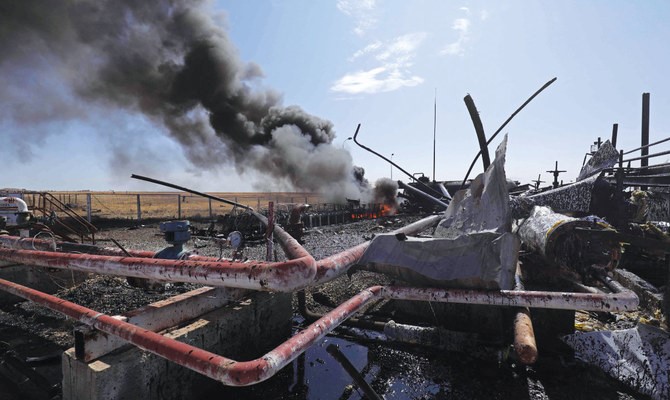In northeastern Syria on Thursday night, a Turkish drone was shot down by US forces, sparking concerns about the impact on the already fragile relationship between Ankara and Washington. However, both parties have swiftly taken steps to ease tensions.
The Turkish military, in response to a suicide bombing near the Turkish Interior Ministry in Ankara on October 1, allegedly carried out by individuals linked to the outlawed Kurdistan Workers’ Party (PKK) from Syria, launched military operations in northern Syria. These operations targeted locations associated with the PKK and its Syrian counterpart, the People’s Protection Units (YPG), in various areas of northern Syria.
Following Foreign Minister Hakan Fidan’s declaration that the PKK and its infrastructure in Syria and Iraq were legitimate targets, Turkish airstrikes were initiated. The US military decided to down the Turkish drone when it approached within 500 meters of American troops in Hasakah, Syria.
This unusual incident has placed both NATO member states in a precarious position. US officials promptly worked to mend relations, emphasizing the importance of their partnership with Turkey. The Pentagon expressed regret over the drone incident and clarified that there was no evidence suggesting Turkey intentionally targeted US forces during their airstrikes.
High-level officials from both nations engaged in discussions to address the recent developments. The Pentagon acknowledged Turkey’s legitimate security concerns, called for de-escalation in northern Syria, and stressed the need for continued military communication between the two countries.
US Secretary of State Antony Blinken and Turkish Foreign Minister Hakan Fidan also held discussions, with Fidan reportedly urging the US to cease working with the YPG, whom Turkey considers a terrorist organization.
Approximately 900 US troops are stationed in northern Syria, primarily cooperating with the Kurdish-led Syrian Democratic Forces (SDF). However, Ankara has long objected to this collaboration, viewing the SDF as an extension of the PKK and urging Washington to stop supporting Kurdish YPG militants in Syria.
While Turkey retains the option of a ground operation in Syria, experts believe it is unlikely, with tactical operations expected to continue. The main concern for the US is the safety of its personnel, and both parties seem committed to avoiding an escalation of tensions.
A Turkish Ministry of Foreign Affairs statement on Ankara’s cross-border attacks did not mention the US but implied a desire to avoid escalation with them while retaining the right to operate against the PKK.
Fidan and Blinken agreed to continue the current de-escalation mechanism between Turkish and US forces in Iraq and Syria, ensuring it does not hinder Turkey’s counter-terrorism efforts.
Experts suggest that the US government has reluctantly approved Turkish operations targeting the YPG in the past, coordinating to avoid harming US troops. A large-scale Turkish incursion into Syria would require complex coordination with Russia and the Syrian regime.
In other matters, the US has urged Turkey to approve Sweden’s NATO accession, and Turkey has reminded the US of its commitment to provide F-16 fighter jets while insisting that Sweden must eliminate PKK activities on its soil.
In conclusion, the PKK’s attack in Ankara has set back Turkish-US relations, potentially delaying important agreements and confidence-building measures between the two countries.
Source: Arab News




